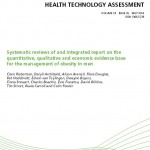A ‘digital diet’ is the practice of controlling the obsessive and excessive usage of digital media, explains Dr Raian Ali, Principal Academic in Computing at BU.
Digital addiction, to games in particular, is often associated with negative life experiences and sometimes serious consequences such as neglecting children and personal health and hygiene conditions. With games like Pokémon Go such addiction could be argued to take cyber-physical form resulting in physical harm such as car accidents and visiting risky places. This motivated us to think of a more responsible way of designing of technology, which would include intelligent and interactive digital addiction labels and warning messages.
Technology can also exacerbate problematic work styles, where people remain connected to their job all the time. We argue that online communication systems are not designed to help reduce preoccupation but indeed often facilitate it.
What is ‘Digital Diet Technology’?
Digital Diet Technology denotes software applications meant to help people monitor and regulate their digital usage and reduce their digital addiction. The technology uses techniques like tracking the amount of usage and visualizing in some form of infographic, allowing users to set up limits of usage and enabling their digital devices to lock automatically and ask them to take a break, comparing their usage to an average user and so on.
Why is it questionable?
The lack of clear scientific background of such technology is what motivated our research. We suspected that ‘digital diet’ technology may have undesirable side-effects, similar to typical cases in utilizing persuasive technology to change behaviour.
As part of our Digital Addiction research and the work done in our ESOTICS research group at Bournemouth University in collaboration with StreetScene Addiction Recovery, we conducted empirical research using diary study method followed by interviews involving participants with problematic usage of their mobile phones. They had to install and use popular commercial Digital Diet apps for two weeks. The study indicated a number of issues.
Misunderstanding and Misjudgement
These apps monitor and evaluate the amount of usage time and frequency. However, digital addiction is not only, and not necessarily, about the time spent and frequency of use. Think of social network users who post a comment and keep thinking of the replies they could be getting even when they should be sleeping.
Lowering Self-esteem
This may happen when a user receives repetitively a message or a score indicating a failure of self-regulated goal or that others are managing to regulate their usage better. Hence, we need a more intelligent classification of users and their groups so that we issue suitable messages and comparisons.
Creating parallel addiction
Some participants said they became more inclined to check their mobile phone to know how they compare to others and how much time they had spent so far which may cause further anxiety and lead them to check other apps. It is like “inviting someone to a pub to talk about their alcohol addiction.”
Lack of Interest and Unsustainable effect
Despites of the usefulness of measuring usage, participants generally felt that the apps were too much of a one-size-fits-all and were too simplistic. The messages sent, the avatars used and the comparisons made do not tend to cluster users and recognize their personality, usage style and perception of their own usage.
For more information about Raian’s research, see his recent blog posts for the Huffington Post here and here.
 Changing diet and exercise, offering men-only groups, and humour may be the recipe for tackling male obesity
Changing diet and exercise, offering men-only groups, and humour may be the recipe for tackling male obesity










 Fourth INRC Symposium: From Clinical Applications to Neuro-Inspired Computation
Fourth INRC Symposium: From Clinical Applications to Neuro-Inspired Computation ESRC Festival of Social Science 2025 – Reflecting back and looking ahead to 2026
ESRC Festival of Social Science 2025 – Reflecting back and looking ahead to 2026 3C Event: Research Culture, Community & Cookies – Tuesday 13 January 10-11am
3C Event: Research Culture, Community & Cookies – Tuesday 13 January 10-11am Dr. Chloe Casey on Sky News
Dr. Chloe Casey on Sky News Final Bournemouth University publication of 2025
Final Bournemouth University publication of 2025 ECR Funding Open Call: Research Culture & Community Grant – Application Deadline Friday 12 December
ECR Funding Open Call: Research Culture & Community Grant – Application Deadline Friday 12 December MSCA Postdoctoral Fellowships 2025 Call
MSCA Postdoctoral Fellowships 2025 Call ERC Advanced Grant 2025 Webinar
ERC Advanced Grant 2025 Webinar Horizon Europe Work Programme 2025 Published
Horizon Europe Work Programme 2025 Published Update on UKRO services
Update on UKRO services European research project exploring use of ‘virtual twins’ to better manage metabolic associated fatty liver disease
European research project exploring use of ‘virtual twins’ to better manage metabolic associated fatty liver disease